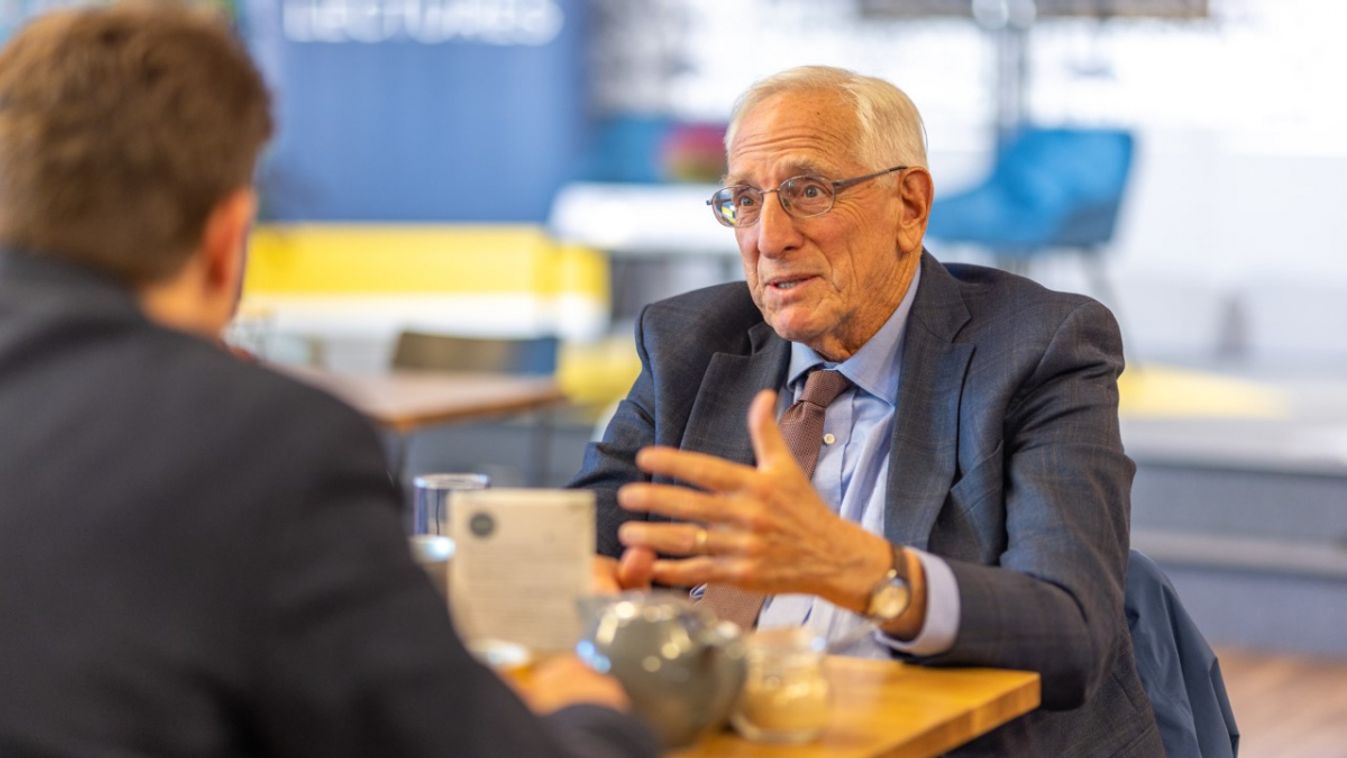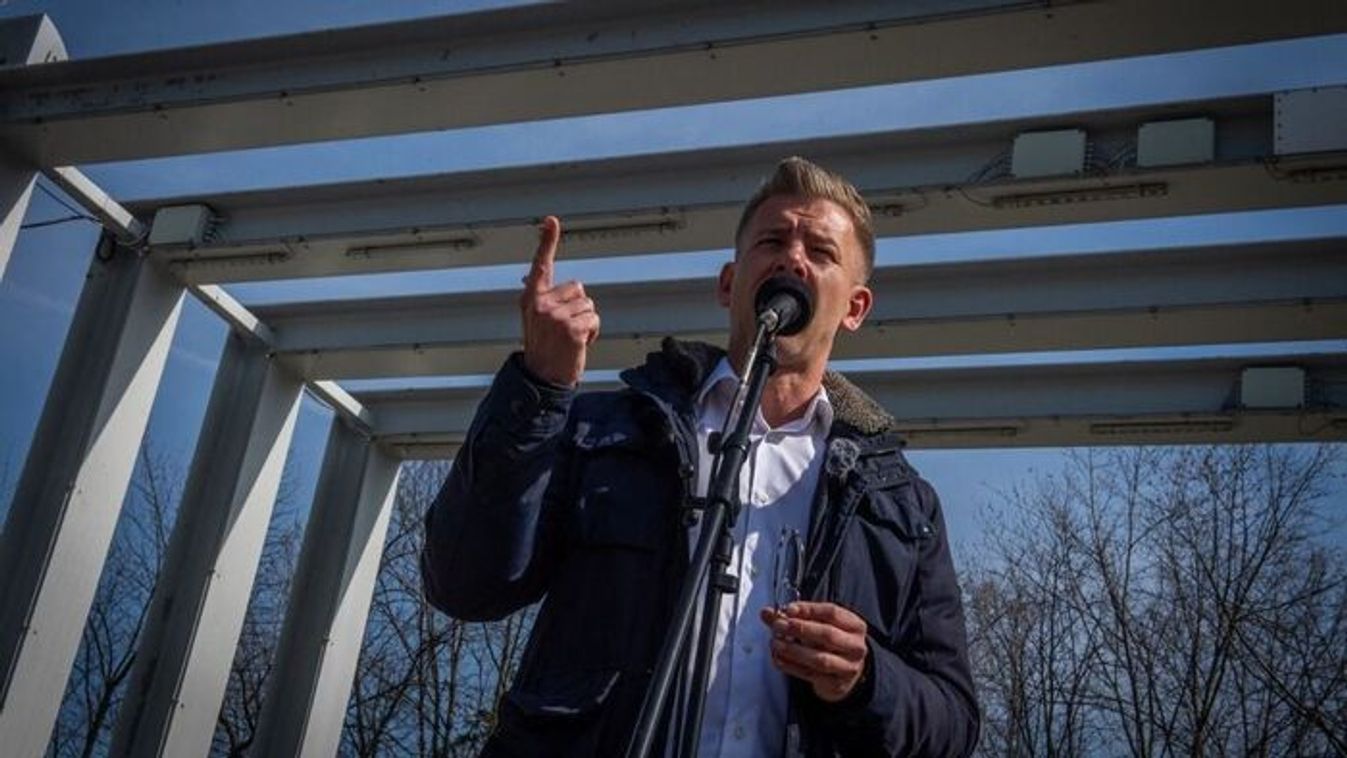Itt a legfrissebb közvélemény-kutatás: így áll most a Fidesz és a Tisza Párt

Továbbra is zajlik a közvélemény-kutatások „háborúja”, utánajártunk, mekkora a valós különbség a Fidesz és a Tisza között.

"I should say, I am glad for any country, Turkey or otherwise, to try to find a way to bring this catastrophic war to an end" - Professor Norman Naimark pointed out in a conversation with Lénárd Sándor.

In the course of your visit to Hungary, many panel discussions were organized about the question of and struggle for sovereignty in the East-Central European context. You also had personal experience about this question when you lived in Berlin. Can you share this experience and your view with us?

I spent on and off at least two years in divided Berlin in the late 1970s and 1980s working on several academic projects. I went over to East Berlin a lot through "Checkpoint Charlie," as was the right of Americans in the four-power city. I made deep friendships and got to know something of the very difficult life that many East Berliners (and East Germans) faced under the communist regime headed by the Socialist Unity Party (SED). It may sound trite, but the lack of freedom was the most striking characteristic that made their lives so unhappy: the inability to travel except in the east bloc; the lack of choice of career paths, especially for non-party members; the intrusiveness of the state security (Stasi) in everyday life; the suppression of consumer choices; party control of schools, education, media, and press; and fear of speaking one's mind in public fora; and so on. Being boxed into the German Democratic Republic the way they were, really tore at the souls of those good people I got to know.
It gave me a renewed sense of how important freedom was for a people and sovereignty was for a state
since the GDR was shaped by Soviet demands and demands of the party bureaucracy.
How did the West look at the reunification of Germany as well as the liberation of East-Central European countries?
From the time the Berlin Wall was built in 1961 until the "Iron Curtain" became an accepted part of the European landscape in the Helsinki Agreement of 1975, the West increasingly looked at East Central European countries as part and parcel of Soviet organized Europe. Despite some scattered attempts to undermine communist rule in the East, one could say the West had more or less accepted the division of Europe in perpetuity. To be sure, competition between the Soviet Union and the U.S. continued in the so-called "Third World." But, on the whole,
Europe was seen as stable and uncontested, which served the interests of both Washington and Moscow.
The Prague Spring 1968 was something of an exception, but it instantaneously became clear that the West would do nothing to aid the Czechoslovaks. Even in 1989, there was great nervousness in Western capitals about the changes that were occurring in the region.
How did this situation change with the collapse of the Soviet Union? What were the opportunities and what are the challenges that continued to exist in East-Central Europe?
Once communism fell and the Soviet Union collapsed, there were great hopes in the West that East Central Europe would quickly engage in what was called a "transition" to democracy and market capitalism. Both in the region itself and in the West, there was a sense that this transition would be easy and seamless. The core of the economic program was privatization of state firms, the dominance of free market conditions, and the attraction of investment capital from the West. Western confidence in its ability to transform communist societies into capitalist democracies was exemplified in Francis Fukuyama's famous work on "The End of History." There was only one system that worked -- ours -- and it would have a world-wide impact. However,
the economic transition proved much more difficult and, in some cases, traumatic,
as the destruction of one economic system, even if sickly, was not so easily replaced by another. But the political transitions, though fraught with a variety of issues, nevertheless, seemed to "take" in the region. By the beginning of the 21st century, the countries of East Central Europe had made enough economic and political progress to be admitted into NATO and the European Union. So, in the end, the "transition" worked, though it took much longer and had many more problems than policymakers of the 1990s thought.
How do you see the question of sovereignty and national interest in the European Union?
Sovereignty is essential for the integrity and sense of purpose of modern nation states -- in Europe and around the world. How individual European states pursue their interests within the European Union, which I see essentially as a confederation, is really up to them. There are trade-offs, bargains, negotiating that needs to go on between individual states and the Union that provides them with concrete benefits.
But I do not see the EU evolving into a federation or a "United States of Europe."
There are too many historical, cultural, and national interests at work in the individual nation states to subsume those interests to Brussels.
The Ukrainian conflict turned to a protracted and bitter war. This puts the European countries in a very hard economic, security, energy, and many other situations. But instead of European powers, it is now Turkey who tries to mediate between the parties. How do you see the situation of Europe from this perspective?
I should say, I am glad for any country, Turkey or otherwise, to try to find a way to bring this catastrophic war to an end. It effects all of us, Africans, Asians, Americans, not just Europeans, and of course Ukrainians most of all. I applaud President Macron's efforts to talk to President Putin, though they seem to have little or no effect. Europe's support of Ukraine is quite remarkable if one thinks about the potential for diverse ways to think about Moscow's actions in the different nations of the continent. Clearly Estonia -- at one extreme -- is deeply worried about potential warfare on its own territory, while Spain, on the other end of the continent, will have different issues. Hungary and Poland with similar domestic political problems with the EU, have had almost opposite reactions to Brussels's actions to deter Russian aggression.
At some point -- now is clearly not that point -- some kind of peace initiative from Europe might make sense.
But right now there seems to be no alternative to continued warfare.